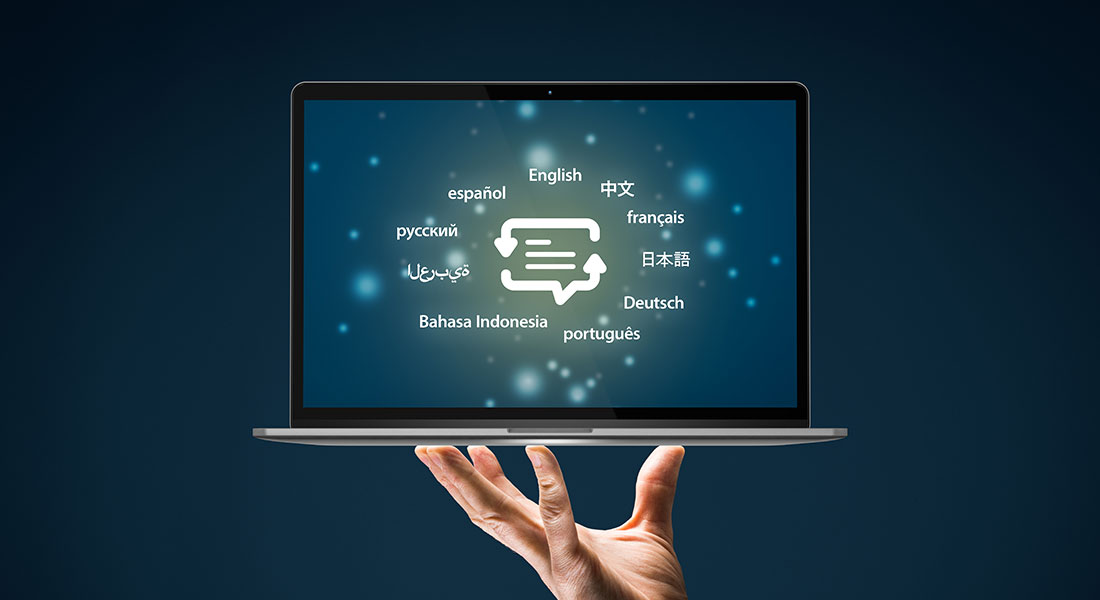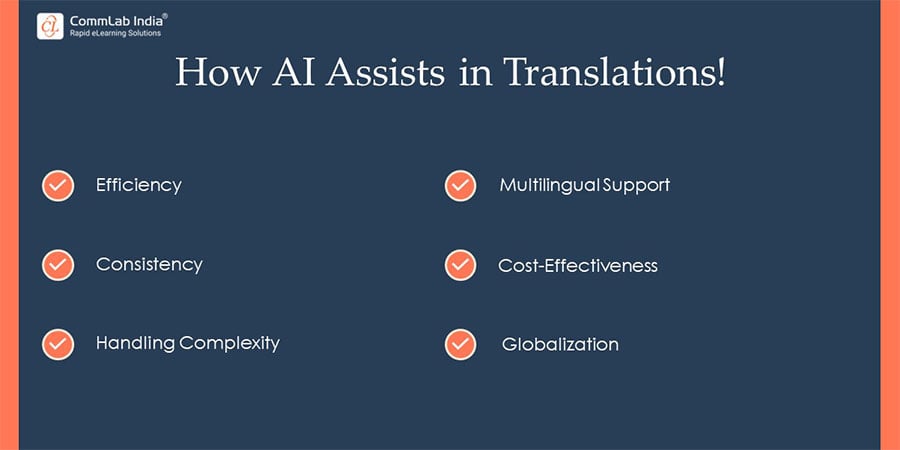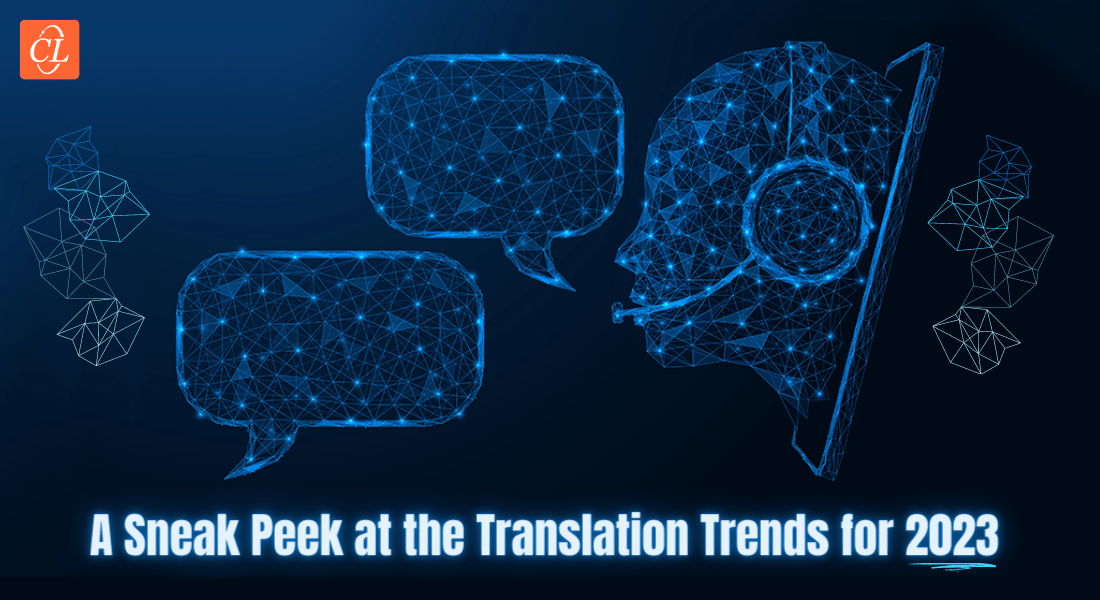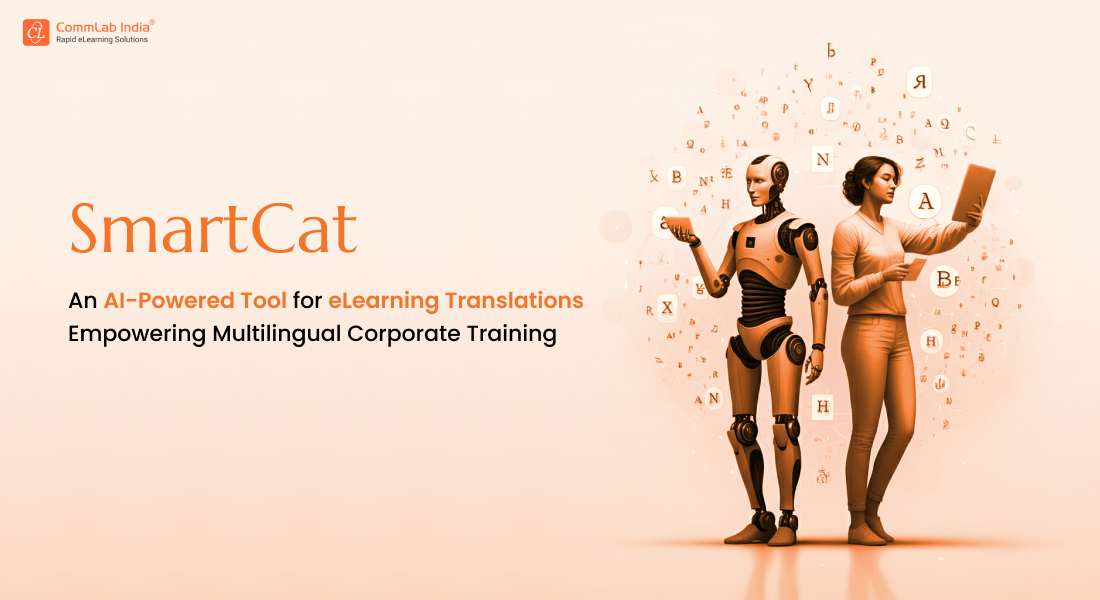A Roundup of 5 Popular AI Tools for eLearning Translations

In today's interconnected world, eLearning has emerged as a powerful medium to part knowledge and skills, catering to diverse learners across the globe. As the workforce is global now, the need for accurate and efficient language translations becomes paramount. Fortunately, advancements in artificial intelligence (AI) have given rise to a new wave of language translation tools that revolutionize the eLearning landscape. In this blog, we will explore five popular AI-powered translation tools—DeepL, Microsoft Azure AI Translator, Amazon Translate, Taia, and MemoQ—and delve into how each tool empowers trainers and content creators to embrace multilingual eLearning.
Popular AI Tools to Lookout for!
Perfect AI Tools for eLearning Translations:
- DeepL: Unlocking Linguistic Brilliance with AI
- Microsoft Azure AI Translator: Precision Meets Adaptability
- Amazon Translate: Fast, Cost-effective, and Multilingual
- Taia Translation Services: Effortless Translation Made Possible
- MemoQ: Enhancing Collaboration in eLearning Translations
1. DeepL: Unlocking Linguistic Brilliance with AI
DeepL stands tall among AI translation tools, setting new benchmarks in translation accuracy and fluency by translating into more than 28 languages. Powered by advanced deep learning algorithms, DeepL excels in capturing nuances in context, producing translations that closely resemble human-generated ones. Its neural networks have been meticulously trained to handle multiple languages with exceptional finesse, making it a go-to choice for global eLearning projects. With DeepL Pro, entire documents can be effortlessly translated, preserving fonts, images, and formatting, providing a seamless editing experience for trainers and learners alike.
2. Microsoft Azure AI Translator: Precision Meets Adaptability
Microsoft Azure AI Translator is a formidable contender in the eLearning translation sphere, combining precision with adaptability. Leaning on neural machine translation, the service boasts context-aware translations, facilitating a coherent and immersive learning experience providing the option of more than 100 languages to choose from. For technical and complex eLearning content, human oversight and proofreading ensure that domain-specific terminology is accurately handled. With its extensive support for file formats and integration capabilities, Microsoft Azure AI Translator seamlessly fits into eLearning workflows, catering to the diverse needs of educators and learners worldwide.
→ Download Now – eLearning Translations
– 7 FAQs Answered
3. Amazon Translate: Fast, Cost-effective, and Multilingual
For those seeking rapid and cost-effective eLearning translations, Amazon Translate stands as a robust solution by supporting translation between 75 languages. Leveraging neural machine translation, the service excels in accurately translating content from various domains and use cases. Its AI-driven efficiency allows for the swift translation of large volumes of text, making it ideal for projects with tight deadlines. While Amazon Translate delivers exceptional results, content creators must be mindful of specialized terminologies, necessitating human proofreading to ensure the utmost accuracy and coherence.
4. Taia Translation Services: Effortless Translation Made Possible
Tap into the combination of human expertise and AI-powered capabilities with Taia translation services. Seamlessly broaden your global presence, assured of precise, consistent translations that maintain the brand's essence. Streamline your localization journey through Taia's innovative approach, blending the best of both human insight and technological power. Taia specializes in delivering accurate and effective translations across various fields in 97 languages. Their dedication to maintaining linguistic integrity and cultural authenticity sets them apart. Whether it's legal, technical, or creative content, Taia's commitment to precision and customer satisfaction makes them a reliable choice for anyone seeking proficient and reliable translation solutions.

5. MemoQ: Enhancing Collaboration in eLearning Translations
MemoQ shines as a translation management system that streamlines the eLearning translation process by translating in more than 250 languages, fostering collaboration among translators, trainers, and content creators. Its support for various eLearning content formats enables effortless import and export for translation, ensuring a seamless workflow. The translation memory feature facilitates the reuse of content, particularly helpful in courses with repetitive phrases. To maintain quality, content creators must be vigilant with domain-specific material, applying human expertise for effective translations and consistent use of specialized terms.
Wrapping it up!
AI-powered language translation tools have transformed the eLearning landscape, bridged linguistic barriers, and promoted inclusive training. Each of the five popular AI tools—DeepL, Microsoft Azure AI Translator, Amazon Translate, Taia, and MemoQ—offers distinctive features, making them valuable assets for organizations and content creators seeking to reach global audiences. As technology continues to evolve, these tools will play an integral role in breaking down language barriers and paving the way for a truly interconnected and diverse eLearning ecosystem. By embracing AI-driven translation solutions, eLearning providers can unlock new opportunities, empower learners worldwide, and contribute to a more inclusive and knowledgeable future. Have more questions? Grab our eBook and get answers to the most common questions related to eLearning translations.





